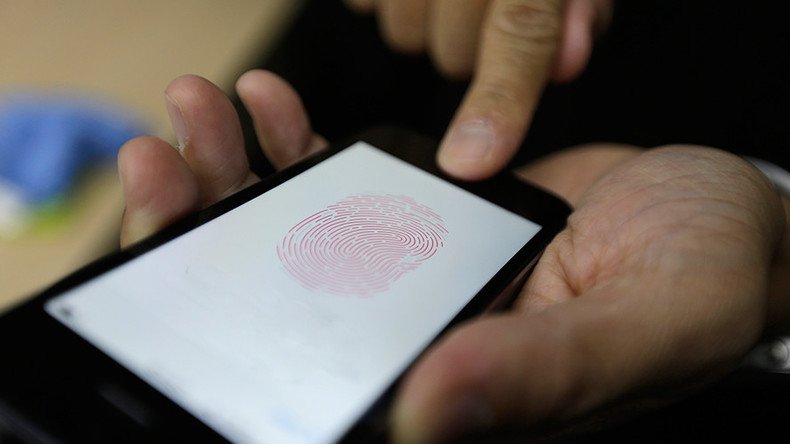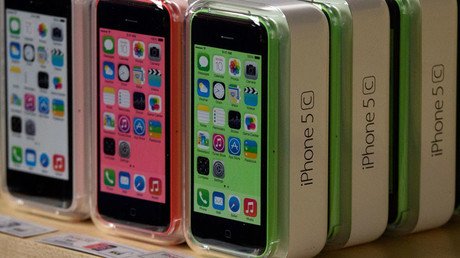FBI gets warrant to force woman to unlock iPhone with fingerprint

A federal judge has signed a warrant to compel a woman to unlock her iPhone’s fingerprint security mechanism. While the Fifth Amendment would prevent a person from having to give their passcode, biometric methods are not similarly protected.
Paytsar Bkhchadzhyan was arrested in late February, and within only 45 minutes the FBI had a warrant in hand, compelling her to use her finger to unlock her iPhone with its Touch ID sensor. It’s believed that prosecutors wanted the data inside the phone, because Bkhchadzhyan is the girlfriend of an alleged Armenian gang member, the Los Angeles Times reported.
Normally, locked smartphones are only opened by way of a passcode, and the Fifth Amendment prevents law enforcement from demanding passwords, even with a warrant. Demanding biometric information like fingerprints, however, is not considered self-incrimination.
Compelling someone to provide their fingerprint is something of a legal grey area that appears to be created by mixture of legal precedents: Police can take fingerprint evidence from a person without a warrant, and a phone can be searched if they do have a warrant and, of course, a method to access it.
This rationale stems from a 2014 Virginia court trial, where the judge determined that forcing a person to hand over a passcode entailed revealing knowledge and therefore testifying, while providing a fingerprint was similar to giving a key and was therefore not self-incrimination, the LA Times explained.
However, many legal scholars contest this reasoning. Susan Brenner, a law professor at the University of Dayton, told the LA Times that Fifth Amendment protections in this instance have nothing to do with the method of opening the phone.
"The contents of that phone, much of which will be about her, and a lot of that could be incriminating,” she said.
"By showing you opened the phone, you showed that you have control over it. It's the same as if she went home and pulled out paper documents – she's produced it."
The case recalls to the FBI’s battle with Apple over opening the iPhone of one of the San Bernardino terrorists this past winter. The agency tried to compel the tech giant to create a backdoor to allow them to access the device, but Apple refused, leading to a legal tug of war that ended abruptly when the FBI acquired an alternative hacking method.













